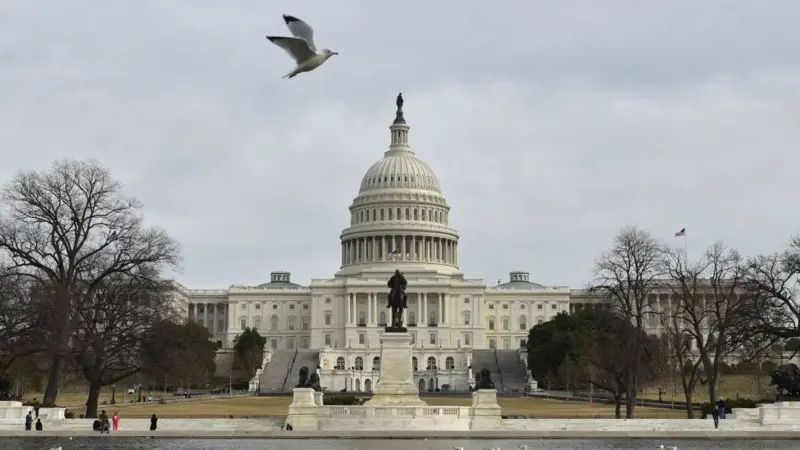The U.S. Senate approved a government funding bill early Saturday, narrowly avoiding a shutdown that could have disrupted essential services and holiday travel. The Democratic-controlled Senate passed the legislation in an 85-11 vote just 38 minutes after the funding deadline expired at midnight (0500 GMT). Shutdown procedures were not initiated during the brief lapse.
The bill now heads to President Biden’s desk, where he is expected to sign it into law. It had earlier cleared the Republican-controlled House of Representatives with bipartisan support.
The last-minute vote capped a tumultuous week in Washington, with sharp divisions threatening to derail the process. The final version of the bill excluded some provisions championed by Democrats, who accused Republicans of bowing to pressure from influential figures outside government.
The legislation will extend government funding until March 14, allocating $100 billion for disaster recovery, $10 billion for farmers, and extending farm and food aid programs set to expire at the end of the year. However, it did not address raising the federal debt ceiling, a contentious issue that Congress must tackle by mid-2024 to avoid a default.
Republican concerns and future plans
Some Republicans opposed the measure, citing concerns over insufficient spending cuts. House Speaker Mike Johnson defended the package as a temporary measure to maintain operations until Republicans, poised to hold majorities in both chambers next year, can take a stronger hand in shaping fiscal policy.
“This was a necessary step to bridge the gap and set the stage for decisive action on spending next year,” Johnson said after the House vote.
A government shutdown would have had significant consequences, halting services from law enforcement to national parks and delaying pay for millions of federal workers. It could have also severely impacted the travel industry during the peak holiday season.
Industry experts warned a shutdown could cost airlines, hotels, and related businesses up to $1 billion per week, leading to delays and disruptions at airports nationwide. Authorities had cautioned travelers to prepare for long lines and potential cancellations if a shutdown had occurred.
With the funding extension in place, the government has averted immediate disruptions, but the path to long-term budget agreements remains fraught with challenges.





